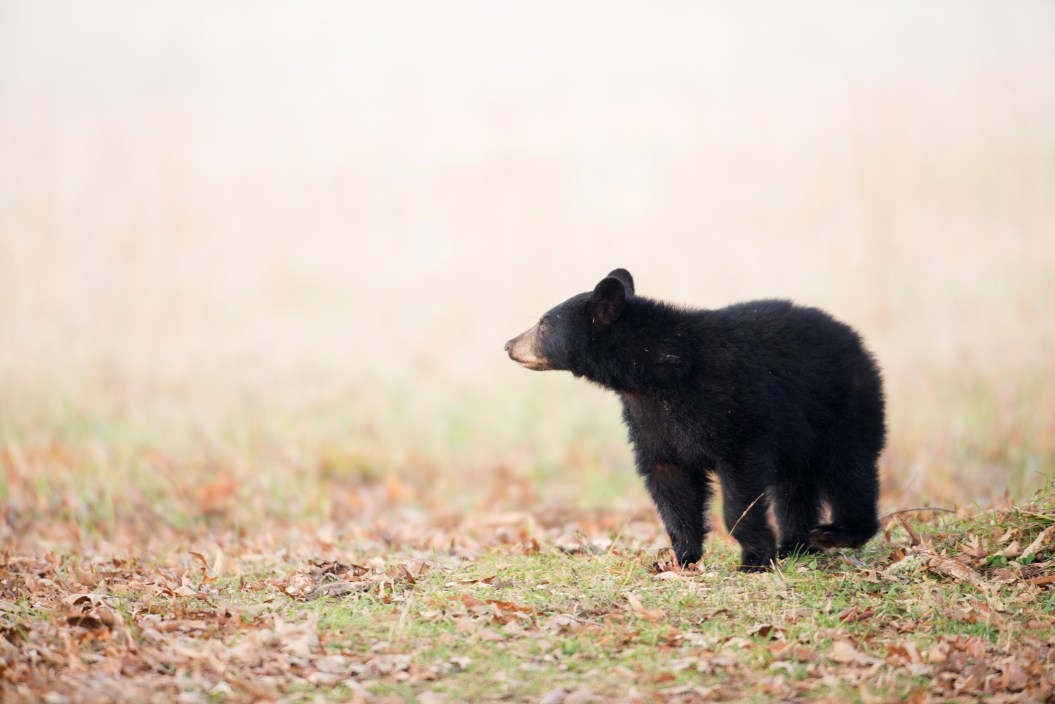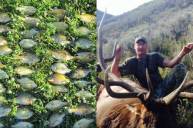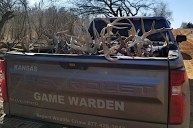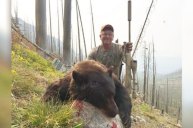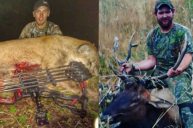Ethical, legal hunting can help control wildlife populations. But there are always poachers who give the activity a bad name—and it's hard to conceive of people who fit that bill more than Gail Faye Freer and her son Corey Douglas Loving II, who were convicted of misdemeanor poaching charges and sentenced earlier this week.
On October 9, 2022, the two Siletz, Oregon, residents went black bear hunting, although it's not clear if they actually possessed bear tags. Freer, 52, and her son, Loving, 29, were trespassing on private land when they found a black bear cub in a blackberry bush.
At his mother's encouragement, Loving pulled the trigger on the cubs, delivering a lethal blow to the young bear. The two left and returned hours later when they believed the cub would be dead.
Keep in mind that while black bear hunting is legal in Oregon with a license from August 1 to December 31, cubs (and sows with cubs) are always off limits.
To Freer and Loving's surprise upon return, they saw a bear cub still wandering around the blackberry patch. Assuming it was the same bear they shot earlier, Loving shot again, hitting the cub.
The pair expected to walk up to a single dead cub with two bullet wounds; however, they instead found two dead bear cubs with single fatal injuries.
They had just poached not one but two black bear cubs—all while trespassing and potentially without tags (though that's still unclear). What's more, they left both dead cubs in the woods and made no effort to retrieve their meat.
While it's unclear why they did this, this final act is perhaps the worst.
"There is no excuse for taking two 8-month-old bear cubs, plus the meat was not taken care of and went to waste," said Oregon Department of Fish and Wildlife (ODFW) District Wildlife Biologist Jason Kirchner in an agency press release. "This is a loss to Oregonians and to those who respect, value, enjoy, and manage our state's wildlife resources."
Why Their Choices Were So Wrong
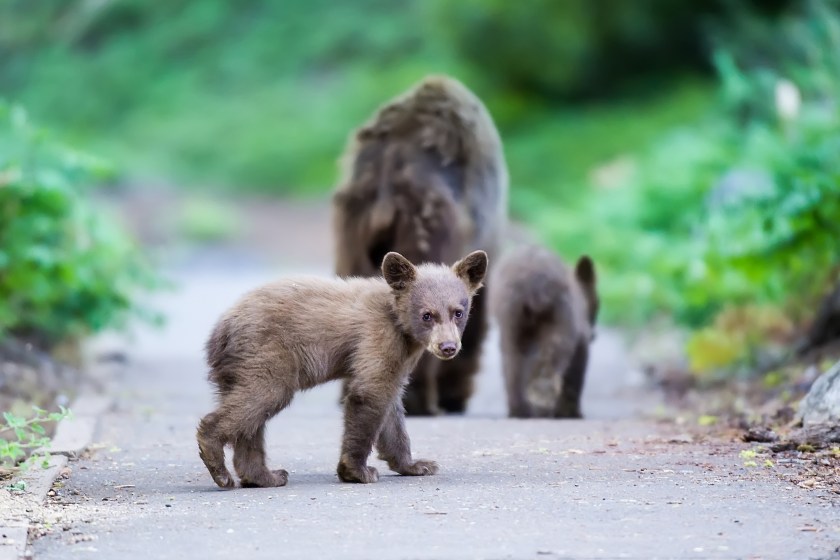
Getty Images, brentawp
Freer and Loving's poaching case is deplorable.
For one, they broke at least three Oregonian laws.
Also, their ignorant decisions decreased their local bear population, which shrunk hunting and wildlife viewing opportunities for others.
But moreover, their story helped proliferate negative connotations and understandings of bear hunting.
These lasting impacts can also negatively impact bear management, as many states rely on hunters to decrease bear populations to help reduce human-wildlife conflict in areas with large black bear populations.
Bear hunting, and hunting in general, is not inherently wrong; but it's poachers like this who give all of us a bad name.
The Legality of the Case
Black bear hunting is a highly regulated activity—and for good reason. For starters, in every state, you certainly need a bear tag to be able to legally hunt bears. In most states, that tag never covers cubs or sows with cubs.
In Colorado, my state of residence and where I bear hunt, Colorado Parks and Wildlife must inspect every bear hide and skull, and wildlife managers can tell from the hide and skull if you shot a female with cubs or an actual cub. Cubs will still have baby teeth, and the hides from sows with cubs will show signs of nursing.
You also nearly always need a landowner's permission to walk on private land. In some states, this permission must be recorded in writing.
The only thing that could be worse than poaching cubs is the fact that they left the bears' bodies to waste in the woods.
Ethically, this is despicable and is what gives hunters a bad name.
It's also illegal in Oregon, where big game hunting regulations states, "Waste any game mammals or edible portions thereof, except that meat of cougar need not be salvaged...All wildlife crippled or killed in the field must be retrieved immediately, if possible, and kept by the hunter in the field. The duty to retrieve and to not waste does not justify otherwise criminal conduct including but not limited to trespass."
This law was not new in 2023; this regulation has been in effect since at least the 1900s. In fact, the first Oregon hunting regulation that outlawed hunting deer and elk exclusively for antlers and hides was enacted in 1872.
How Freer and Loving Were Caught
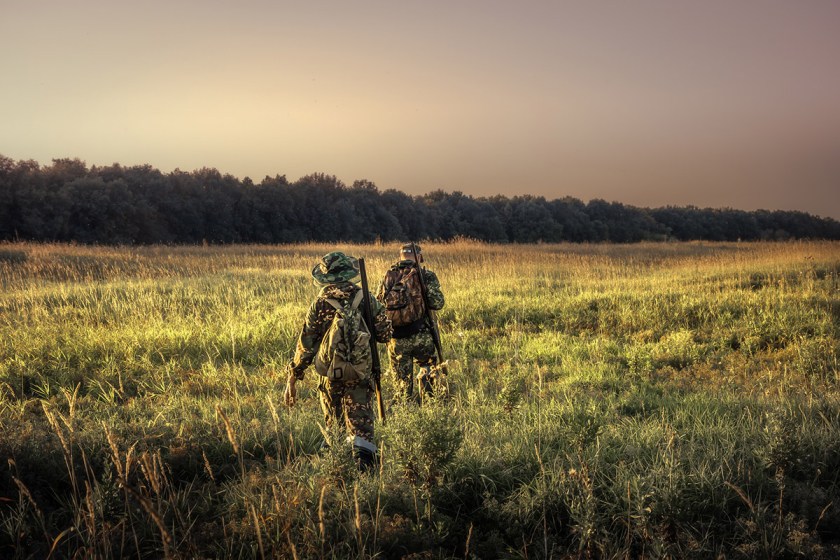
Thankfully, an anonymous citizen turned in Freer and Loving via Oregon's poaching tip line, Turn In Poachers (TIP).
The TIP program is part of a larger initiative in the state called Stop Poaching. Stop Poaching seeks to educate the public about recognizing and reporting poaching. Its goal is to "incentivize reporting on wildlife crimes through the TIP Line, strengthen enforcement by increasing the number of OSP Fish and Wildlife Troopers, and support prosecution in becoming an effective deterrent," according to the ODFW website.
Lincoln County charged Loving with five counts of "taking, angling, hunting, or trapping in violation of wildlife law or rule," according to the court documents. After pleading not guilty to all five charges in December, he pleaded guilty to two charges in February. That same month, he was convicted. His mother pleaded guilty to one of those same charges and was convicted on the same day as Loving.
As a result of that TIP Line call, Freer and Loving must pay $15,000 in damages, lose their hunting privileges for three years, and will be on bench probation for 60 months.
What You Can Do
If you see someone poaching or find a poached animal, turn them in to your state wildlife agency. Even if the poacher doesn't get caught, this information helps agencies build a bigger picture of poaching rates in their state. Reporting poachers helps protect those who hunt legally and supports legal hunting methods as wildlife management tools.
Read More: Here's Where It's Legal to Hunt Grizzly Bears
